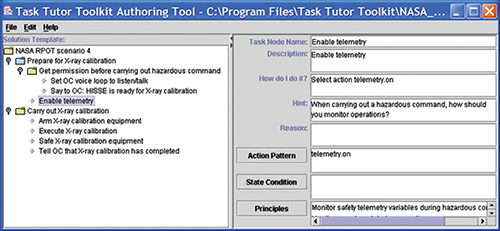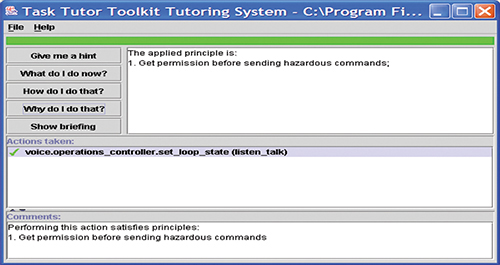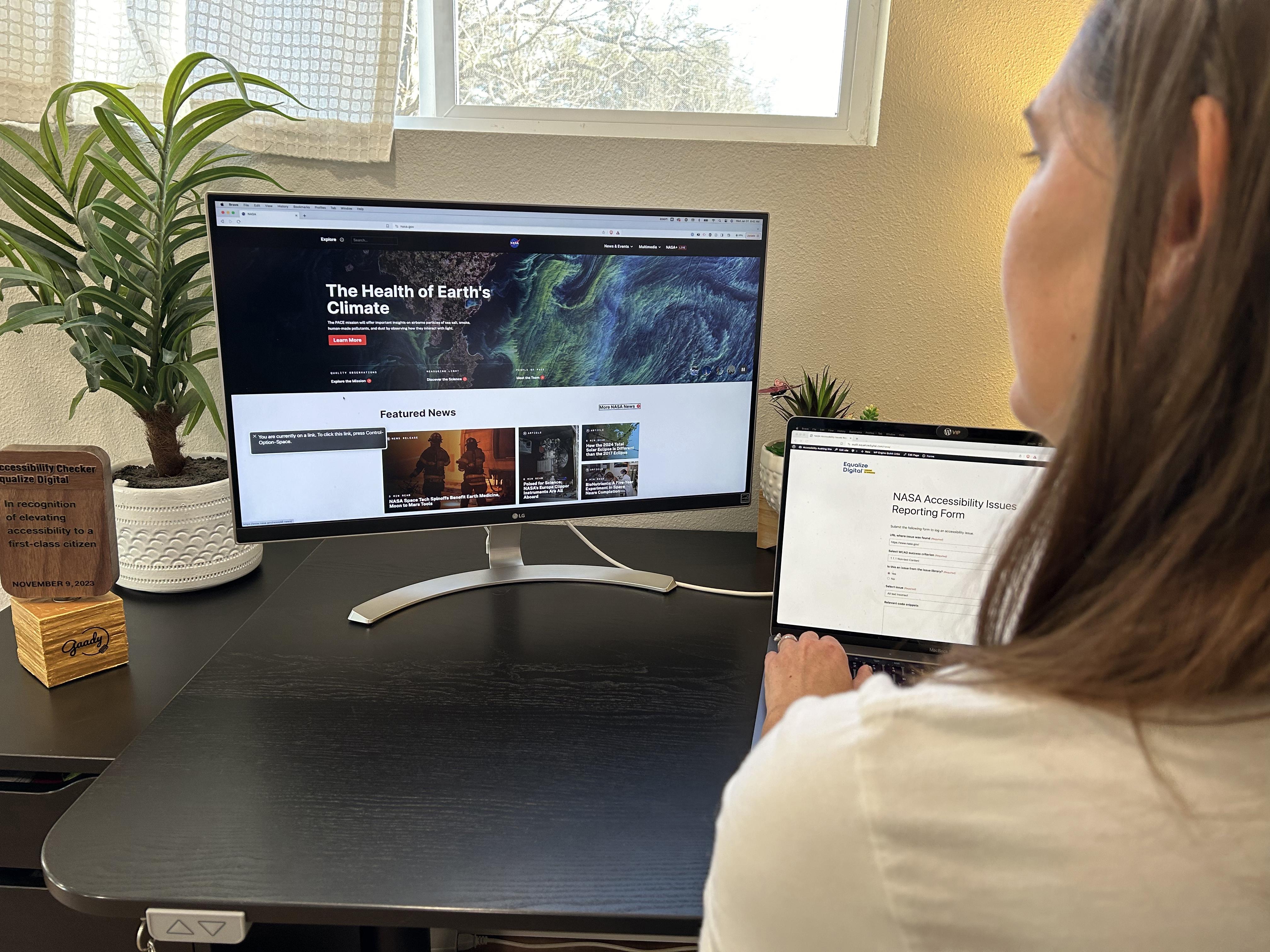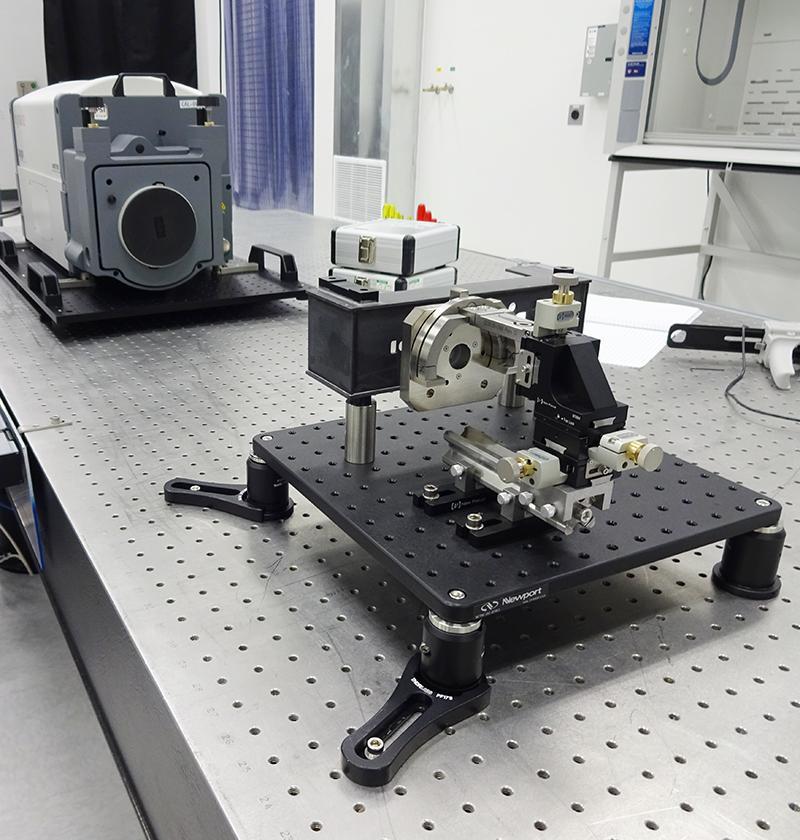A Tutor That's Up to the Task
Present advances in artificial intelligence (AI) are opening the doors to virtual classroom and training environments where students and trainees are getting undivided attention with one-on-one computer-based instruction. Such new developments are effectively alleviating concerns over long-standing educational issues, such as student-teacher interaction and student-to-teacher ratios. Furthermore, high-level research demonstrates that students who engage in learning using AI-based Intelligent Tutoring Systems (ITS) generally perform better and learn faster, compared to classroom-trained students.
With assistance from NASA's Marshall Space Flight Center, a new breed of ITS for technical training and complex problem-solving has hit the market to provide students and trainees with the decision-making skills necessary to succeed to the next level. The Task Tutor Toolkit™ (T3), developed by Stottler Henke Associates, Inc., of San Mateo, California, is a generic tutoring system shell and scenario authoring tool that emulates expert instructors and lowers the cost and difficulty of creating scenario-based ITS for technical training.
The functionality of Stottler Henke Associates' T3 far exceeds that of traditional computer-based training systems, which test factual recall and narrow skills by prompting students to answer multiple-choice or fill-in-the-blank questions. The T3, on the contrary, lets students assess situations, generate solutions, make decisions, and carry out actions in realistically complex scenarios. At the beginning of each scenario, the T3 tutoring system presents a briefing that describes the situation and the goals the students should pursue. Each scenario contains a solution template that specifies a partially-ordered sequence of action patterns that match correct sequences of student actions. During each scenario, the built-in simulator notifies the tutoring system of each student action. The T3 uses this information to evaluate the student action by comparing it with the scenario's solution template and with error rules that detect incorrect actions.
To prevent running into "dead-end" situations, students can request hints and ask questions by clicking on buttons in the user window. Rather than just setting up students with the right answers to complete a scenario, the T3 simulator explains why the recommended actions should be taken. When students carry out a correct action specified by the solution template, the T3 awards them credit for applying the principles linked to the action. At the end of each scenario, the tutoring system displays a report card that lists the principles the students successfully—and unsuccessfully—demonstrated. These results can be sent to a learning management system to record the students' performance, knowledge, and skills.
The T3 is just as easy for instructors and subject matter experts to operate. It consists of a set of Java™ software libraries and applications that let the user create the scenarios quickly and easily, without programming. The system's Simulator and Authoring Tool are used to create application-specific scenarios and lesson plans. The Simulator hosts the correct sequence of actions for the scenario, and the Authoring Tool records these actions to generate the initial solution template.
The tutoring technology was developed from 1997 to 2002, under a Small Business Innovation Research (SBIR) contract with Marshall, to address NASA's need for rapid deployment of scenario-based tutoring systems. NASA utilized the toolkit to create the Remote Payload Operations Tutor (RPOT), a system that lets scientists who are new to space mission operations learn to monitor and control their experiments aboard the International Space Station, according to NASA's existing payload regulations, guidelines, and procedures. RPOT combines simulations with automated tutoring capabilities to provide hints and instructional feedback to its students. The system makes it unnecessary for NASA to dedicate an instructor for each student during the simulation exercises.
NASA is exploring the possibility of using the toolkit for onboard training of Space Station flight crews where human instructors cannot be made easily available. This could also serve a purpose in the pre-flight phase when flight crews are traveling away from the high-fidelity training simulators.
Outside of NASA and the corporate and technical training realm, the T3 may be used in educational settings of all levels for math problem-solving and scientific laboratory procedures. The software could also be practical for students at technical institutes and trade schools that teach equipment operations and maintenance.
Task Tutor Toolkit™ is a trademark of Stottler Henke Associates, Inc.
Java™ is a trademark of Sun Microsystems, Inc.

The T3 Authoring Tool lets instructors edit scenarios by demonstrating, generalizing, and annotating solution templates. Icons in the left pane show actions organized into ordered and unordered groups. The right pane shows the attributes of the selected action, Enable telemetry.

The T3 Tutoring System window provides feedback and hints on demand to students during scenarios.













